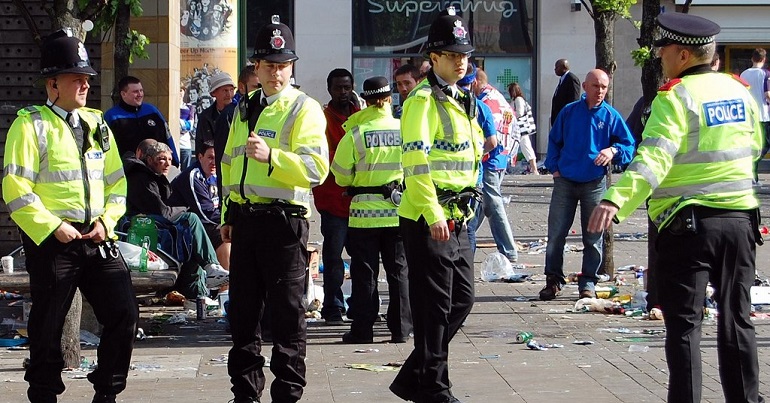Superinjunctions: One law for the rich
One of my fondest fantasies is that in Britain a measure of equality still exists. Yes there are people who are very rich and others who are very poor. Yes, some people live in a part of the country that allows them to go to a good state school, while others have to accept a place at a school that fails its pupils. And yes, some live near a good hospital while others will die of botched surgery or MRSA because they live near a bad one.
But in Britain we are supposed all to be equal under the law. It is a principle that goes back in large measure to Magna Carta. That charter bound King John and his successors to the laws of the land just as everyone else was bound by them.
However with the rise of the super injunction we see another example of a two tier legal system emerging. In the absence of privacy legislation, which makes clear the rights of each and every citizen to a certain measure of privacy and the circumstances under which that privacy can be violated, the law is being written by the courts.
Unlike standard case law which results in precedents being absorbed into the common law, and which then pass into general use, super injunctions create the law on a case by case basis. Moreover they create the law only for those who can afford the very expensive services of the best media lawyers. For everyone else privacy only exists because we are of no interest to the tabloids.
The former teacher Christopher Jefferies, whose tenant Jo Yeates was so brutally murdered, had his reputation destroyed by press speculation. The police played a key part in his exposure and there were no means available to him to prevent the flood of intrusion into his life. His recourse came after the fact. He is suing the newspapers who he believes libelled him. He may get justice. He may gain a degree of satisfaction. However I suspect that no amount of money and no apology, however fulsome, will ever truly compensate him for what he went through.
In contrast the rich and famous are now able to gag the press and prevent anyone outside the offices of newspaper editors from knowing that a gag exists. All the same rumours flourish on the internet.
Some of these may be untrue. The dirt of celebrity A can stick to celebrity B because of the frenzy of speculation that A’s super injunction creates. Celebrity B can’t confront the speculation because it exists as a miasma in cyberspace rather than on the pages of a newspaper where it can be challenged. No one taking a considered stand would want to respond to every silly piece of tittle tattle on the web.
Instead newspapers now point us to other sites such as Wikipedia that have been edited by those who want to expose those who have taken out super injunctions and whose deleted revisions can be seen in the history log of those pages. Indeed we have no way of knowing whether those would-be Wiki-editors are any better informed than you or I.
A cursory search of the net reveals allegations that Ryan Giggs had an affair with Imogen Thomas, that Ewan McGregor paid for sex with Helen Wood and that Alan Shearer and Gabby Logan had an affair with one another.
There is nothing to substantiate any of these suggestions. In the absence of evidence they are gossip, no more. Indeed they may be rumours that would not have otherwise been created other than in the vacuum of information brought about by the existence of super injunctions.
Very few people know whether, by merely mentioning these allegations, they are violating a super injunction and are guilty of contempt of court. What they do know however is that there is something out there they mustn’t talk about, they just don’t know what. Thus the existence of super injunctions has the potential to quash both speculation and legitimate discussion about other prominent people, some of whom might rightly be exposed.
In fact it would appear that the super injunction only applies to those who know of its existence. I am not privy to that information and nor are the editors of Bright Green. However proving that one doesn’t know something (as is proving any sort of negative) is far more difficult than proving one does.
What super injunctions certainly do however is create a climate where the rich and powerful can use their wealth to bully others into silence and where others are afraid to talk. And that opens the door to a dark world, the like of which we see in dictatorships through history, where the surest form of control is to create such fear that people will censor themselves.
But, in this interconnected age, super injunctions do not hold internationally. A blogger in the Phillipines need have nothing to fear from the High Court in London, nor a paper in Peoria, a printer in Padua or a Pretoria TV presenter. The only people who can be gagged by this are the citizens of the nation for which Magna Carta was framed, a nation whose one time leader, the Duke of Wellington, when confronted with this sort of petty scandal, declared ‘publish and be damned.’
Free speech is being moved offshore; outsourced. What has become of us? For these reasons, if for no others, we should resist super injunctions in every way that we are able.



I also dream of such equality. That there’ll be no ppor and rich. But then again, this dream seems impossible. Thus, it is a challenge for the poor, to improve their econimic statues and for the rich, to extend their hands to help and assist the poor to improve their living.
If people are not allowed to be told the truth they will make up their own truths instead…and they will be far more interesting!
Four good points well put Jon – thanks.
I wonder what the impact would be if there was a limit placed on the liability of private citizens (rather than corporate entities) for the other side’s costs?
Whilst we might wish to believe that justice is blind, there has always been a range of inequality in the system. For starters – as you point out – legal services are expensive and where costs may be awarded against the litigant, there will always be a substantial deterrent for those who do not have the ability to pay.
Secondly – the rich can afford much better lawyers. A rich individual or corporation will typically be hiring the services of a team of senior and junior lawyers, paralegals and a top barrister to fight their case. Further down the food chain are overworked trade union lawyers, no win, no fee and of course legal aid – which may no longer be available to many people with genuine grounds to bring a case. These people are effectively limited to getting what advice they can from the citixens advice centre or law centres and then perhaps having to risk their life savings (if they have any) on hiring a solicitor or fighting the case themselves. In employment cases this reduces the chances of winning from about 36% for a solicitor or 17% for a union rep to about 8% (give or take). A level playing field, it is not.
Thirdly the way that courts issue judgements is not automatically biased in favour of the rich, but judges do not like being overruled in a court of appeal. Hence there will be a tendency no to issue marginal judgements against parties that have ample funds to use the appeal process. I am sure that judges would disagree that this is the case, as they will with my next point, but there are reasons why I believe this to be the case.
Lastly, judges are sensitive to the way that the winds of politics (and to a lesser extent public opinion) are blowing. I have book called “The Politics of the Judiciary) that cites numerous examples of how justice depends on a range of factors in the political domain. It stops short of saying that judges consider their decisions in the light of how they might affect their promotion prospects, but that seems implicit in the argument. In short – under a Tory government the poor sometimes get a crappier deal. And Labour hasn’t exactly been the people’s champion recently.
So – shit deal all round if you’re poor – and that’s the way that it’s been as long as we’ve had a legal system. I’m not saying that there aren’t lots of judges that actually try to help poorer people present their case, but there are probably plenty who just want to get it over with and hit the golf course.